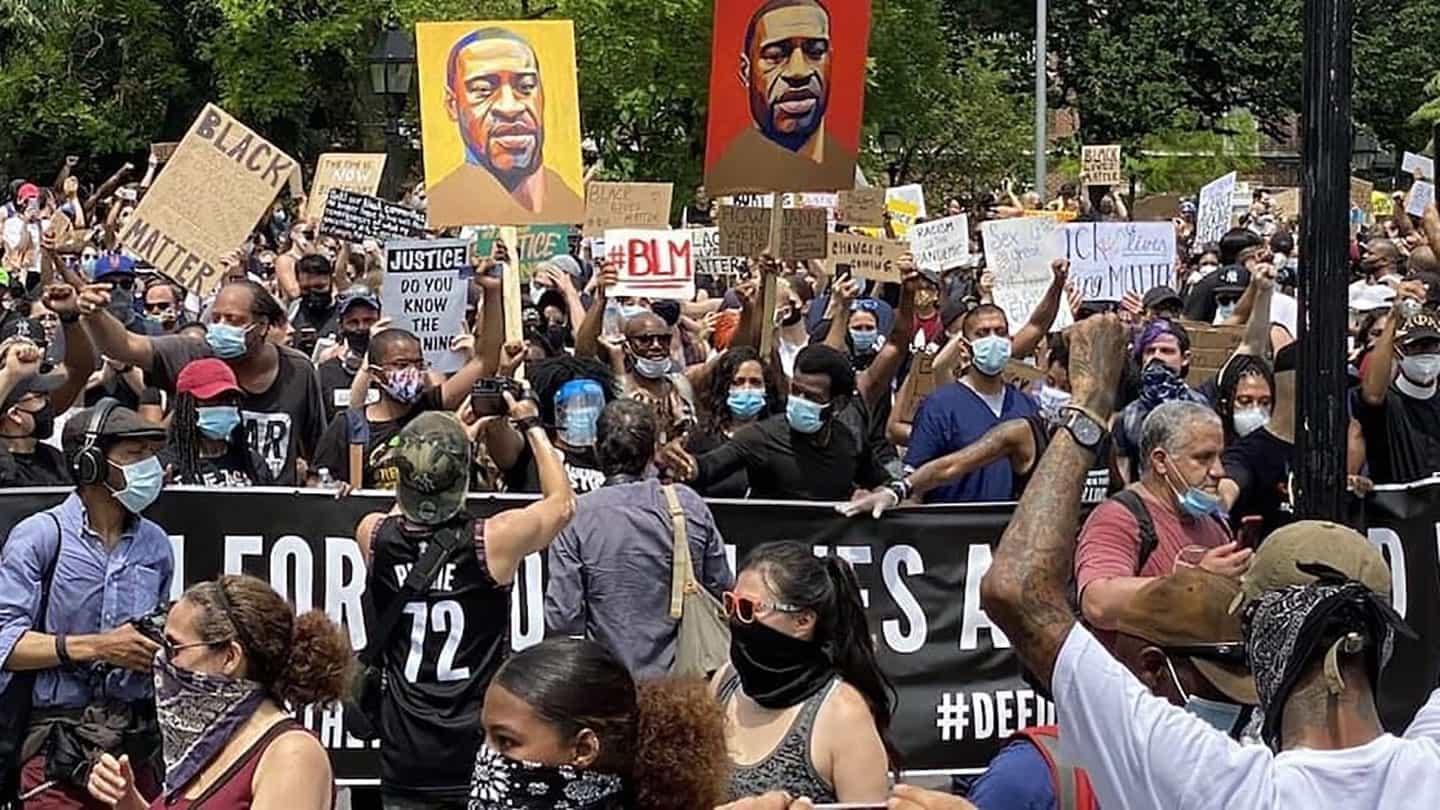Moderated by leading journalists, panels of faculty experts on education, criminal justice, health care, economic systems, and U.S. government policy convened in a year-long public webinar series to explore research-based discoveries and potential solutions for combating systemic racism and improving equity. Organized in partnership with the American Studies Program.
Past Events
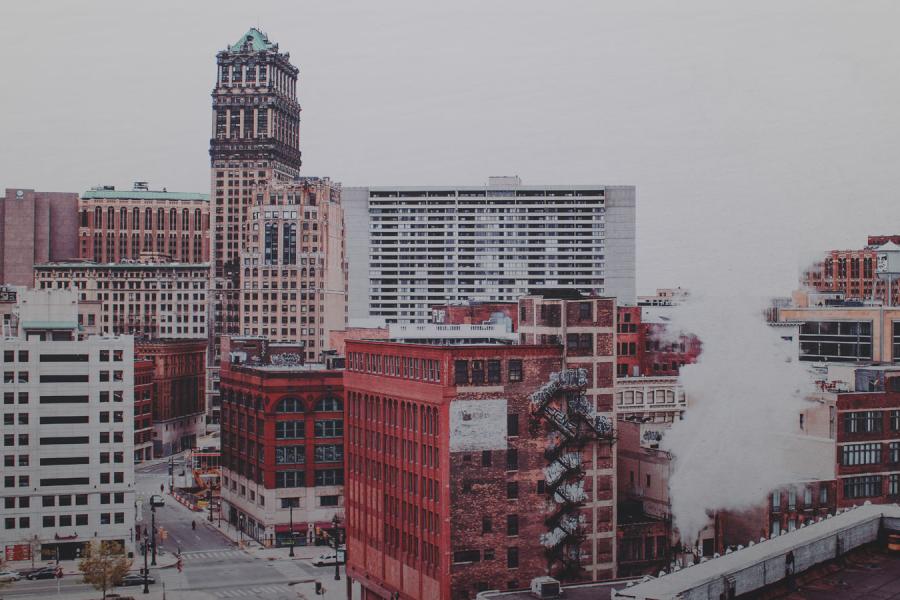
The Economy
April 27, 2021 at 7:00pm
In the final session of the series, our focus was on the many ways that racism influences economics in America-from debates over who “trickle down” economics does and does not benefit, to a look at how racism has influenced supposedly race neutral financial policies such as the G.I. Bill, the home mortgage deduction, and social security. Organized to look at the past as well as present of the relationship of racism to capitalism and the unequal impact of COVID-19 on different sectors of the economy. The panel was moderated by reporter Tracy Jan, who covers the intersection of race and the economy for The Washington Post.
References and resources
Alexander, Michelle, The New Jim Crow: Mass Incarceration in the Age of Colorblindness. The New Press, Inc., 2010
Bell, Derrick. Faces at the Bottom of the Well: The Permanence of Racism. Basic Books, 2018.
Collins, Patricia Hill. Black Feminist Thought: Knowledge, Consciousness and the Politics of Empowerment. Routledge, 2009.
Cose, Ellis. The Rage of the Privileged Class: Why Are Middle-Class Blacks So Angry? Why Should America Care? Harper Perennial, 1994.
Fuller, Charles. “A Soldier’s Play.”
Glickman, Lawrence B. Buying Power: A History of Consumer Activism in America. University of Chicago Press, 2009.
Glickman, Lawrence B. Free Enterprise: An American History. Yale University Press, 2019.
Glickman, Lawrence B. “How White Backlash Controls American Progress,” The Atlantic, May 21, 2020.
Graham, Lawrence Otis. Our Kind of People: Inside America’s Black Upper Class. Harper Collins Publishers, 1999.
Groshen, Erica L., “COVID-19’s Impact on the U.S. Labor Market as of September 2020,” Business Economics, Vol. 55, No. 4, October 2020.
Hacker, Andrew. Two Nations: Black and White; Separate, Hostile, and Unequal. Simon and Schuster, 2003.
Hsieh, Chang-Tai; Hurst, Erik; Jones, Charles I.; Klenow, Peter J. “The allocation of talent and U.S. economic growth.” Econometrica, Vol. 87, No. 5, September, 2019.
Jack, Anthony Abraham. The Privileged Poor: How Elite Colleges are Failing Disadvantaged Students. Harvard University Press, 2019.
Jan, Tracy. “A new gentrification crisis.” Washington Post, July 31, 2020
Jan, Tracy. “After prison, more punishment.” Washington Post, Sept. 3, 2019
Jan, Tracy. “The Forgotten Ferguson.” Washington Post, June 21, 2018
Jan, Tracy. “Reparations, rebranded.” Washington Post, Feb. 24, 2020.
Jan, Tracy. “The ‘whitewashing’ of Black Wall Street.” Washington Post, Jan. 17, 2021.
Jenkins, Destin. “What Does It Really Mean to Invest In Black Communities?” The Nation, June 29, 2020
Kelley, Robin D. G. “What Did Cedric Robinson Mean by Racial Capitalism?” Boston Review, Jan. 12, 2017.
Lacy, Karyn. Blue Chip Black: Race, Class, and Status in the New Black Middle Class. University of California Press, 2017.
McGhee, Heather. The Sum of Us: What Racism Costs Everyone and How We Can Prosper Together. Penguin, 2021.
Manring, M.M. Slave in a Box: The Strange Career of Aunt Jemima. University of Virginia Press, 1998.
Mitchell, Koritha. From Slave Cabins to the White House: Homemade Citizenship in African American Culture. University of Illinois Press, 2020.
Nagaraja, Tej. “Reflections on Juneteenth.” ILR School, June 19, 2020.
Pitts, Steven. “Black Work Talk” podcast.
Pressley, Ayanna and Stein, David. “The Fed has a responsibility to reduce unemployment in the Black community.” CNBC, July 21, 2020
Richardson, Riché. Emancipation′s Daughters: Reimagining Black Femininity and the National Body. Duke University Press, 2021.
Taylor, Keeanga-Yamahtta. “How Real Estate Segregated America.” Dissent Magazine, Fall 2018.
Washington Post Staff. “George Floyd’s America: Examining systemic racism and racial injustice in the post-civil rights era.” Washington Post, Oct. 26, 2020
Wells, Ida B. Southern Horrors and Other Writings; The Anti-Lynching Campaign of Ida B. Wells, 1892-1900. Bedford/St. Martin's, 1996
Wilson, William Julius. When Work Disappears: The World of the New Urban Poor. Penguin Random House, 1997.
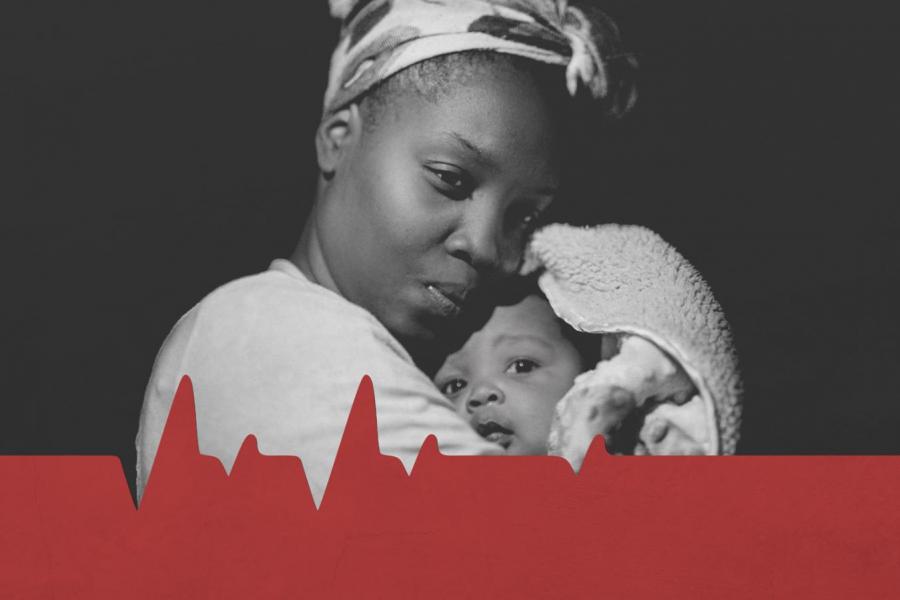
Health
March 29, 2021 at 7:00pm
In this session of the series, our focus was on the impact that racism has on access to healthcare and health outcomes. The webinar explored the ways that inequality permeates the American medical system and how these disparities affect both economic wellbeing and the health of minority populations – which the current pandemic has illuminated with dire consequences. The panel was moderated by Akilah Johnson, Pulitzer Prize-winning national reporter for the Washington Post writing about the effect of racism and social inequality on health. Partners for the event included Weill Cornell Medicine, the Cornell Center for Health Equity and the College of Agriculture and Life Sciences.
References and resources
Bajaj, SS. and Stanford, FC. Beyond Tuskegee — Vaccine Distrust and Everyday Racism. The New England Journal of Medicine. February 4, 2021; 384:e12.
Ezell, J. M., Salari, S., Rooker, C., and Chase, E. C. Intersectional Trauma: COVID-19, the Psychosocial Contract, and America’s Racialized Public Health Lineage. Traumatology. January 2021.
Johnson, Akilah. Death in the prime of life: Covid-19 proves especially lethal to younger Latinos. Washington Post, March 15, 2021.
Johnson, Akilah and Nina Martin. How COVID-19 Hollowed Out a Generation of Young Black Men. ProPublica, December 22, 2020.
Johnson, Akilah and Talia Buford. Early Data Shows African Americans Have Contracted and Died of Coronavirus at an Alarming Rate. ProPublica. April 3, 2020.
Johnson, Akilah and The Spotlight Team. BOSTON. RACISM. IMAGE. REALITY. Boston Globe, December 10, 2017.
Krieger, N. ENOUGH: COVID-19, Structural Racism, Police Brutality, Plutocracy, Climate Change—and Time for Health Justice, Democratic Governance, and an Equitable, Sustainable Future. American Journal of Public Health. October 7, 2020. 110, no. 11: pp. 1620-1623.
Lewis, Jr., Neil. COVID-19 reminded us of just how unequal America is. FiveThirtyEight, March 29, 2021.
Michener, Jamila. Race, Politics and the Affordable Care Act. Journal of Health Politics, Policy and Law. August 2020; 45 (4): 547–566.
Michener, Jamila. Fragmented Democracy: Medicaid, Federalism and Unequal Politics. Cambridge University Press, 2018.
Onyeador, I., Hudson, S. T. J., & Lewis, N. A., Jr. Moving beyond implicit bias training: Policy insights for increasing organizational diversity. Policy Insights from the Behavioral and Brain Sciences. 2021, Vol. 8(1) 19-26.
Safo S., Torres-Burgos D., McWIlliams G. and Morales S. Commentary: New York, let’s talk about the COVID-19 vaccine. NY Amsterdam News, February 4, 2021.
Song, H., Lewis, N. A., Jr., et al. What counts as an “environmental” issue? Differences in environmental issue conceptualization by race, ethnicity, and socioeconomic status. Journal of Environmental Psychology. 2020.
Russell D. and Morales S. Opinion: NY’s Vaccine Plan Must Include Education, Similar to Census Outreach. City Limits, March 2, 2021.
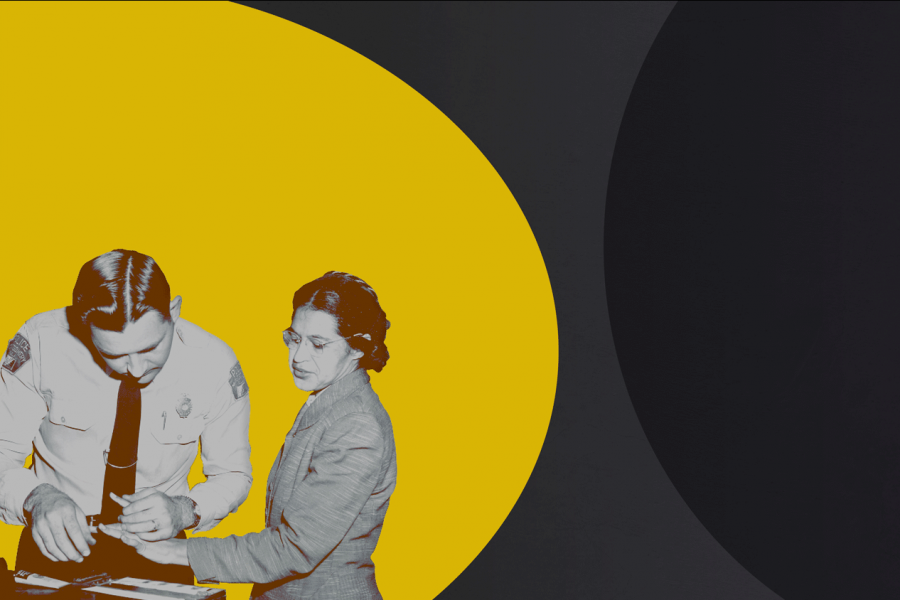
Protest Movements and Civil Disobedience
February 24, 2021 at 7:00pm
In this session of the series, the focus was on how protest movements and civil disobedience have sought to both end and uphold racial discrimination. Introduced by Noliwe Rooks, The W.E.B. Du Bois Professor of Africana Studies and director of the American Studies Program and moderated by Kat Stafford, national investigative race writer for the Associated Press, five faculty experts addressed the history and present of the civil disobedience and protest movements that have brought us to this fraught moment in the U.S. The discussion explored how different communities, groups, and movements have defined protest and engaged in it, seeking to sway public opinion. Our experts helped us understand the ways protest has worked to effect real, sustainable change.
References and resources:
Anderson, Carol E. White Rage: The Unspoken Truth of Our Racial Divide. Bloomsbury Publishing. 2016
Bacareza Balance, Christine and Lucy San Pablo Burns. California Dreaming: Movement & Place in the Asian American Imaginary. University of Hawaii Press. 2020
Bacareza Balance, Christine. Tropical Renditions: Making Musical Scenes in Filipino America. Duke University Press. 2016
Boggs, Grace Lee. Living for Change: an Autobiography. University of Minnesota Press. 2016
brown, adrienne maree. Emergent Strategy: Shaping Change, Changing Worlds. AK Press. 2017
Diaz, Ella Maria. José Montoya. University of Minnesota Press. 2020
Diaz, Ella Maria. Flying Under the Radar with the Royal Chicano Air Force: Mapping a Chicano/a Art History. University of Texas Press. 2017
Kelley, Robin. Freedom Dreams: The Black Radical Imagination. Beacon Press. 2003
Ishizuka, Karen. Serve the People: Making Asian American in the Long Sixties. Verso. 2016
Maeda, Daryl. Chains of Babylon: the Rise of Asian America. University of Minnesota Press. 2009
Marable, Manning. Race, Reform & Rebellion: The Second Reconstruction and Beyond in Black America, 1945-2006. University Press of Mississippi. 2007
Okihiro, Gary. Third World Studies: Theorizing Liberation. Duke University Press. 2016
Rickford, Russell. We Are an African People: Independent Education, Black Power, and the Radical Imagination. New York: Oxford University Press. 2016
Rana, Aziz. The Two Faces of American Freedom. Harvard University Press. 2014
Taylor, Sonya Renee. The Body Is Not an Apology: the Power of Radical Self-Love. Berrett-Koehler Publishers, Inc. 2018
Washington, Margaret. Sojourner Truth's America. University of Illinois Press. 2009
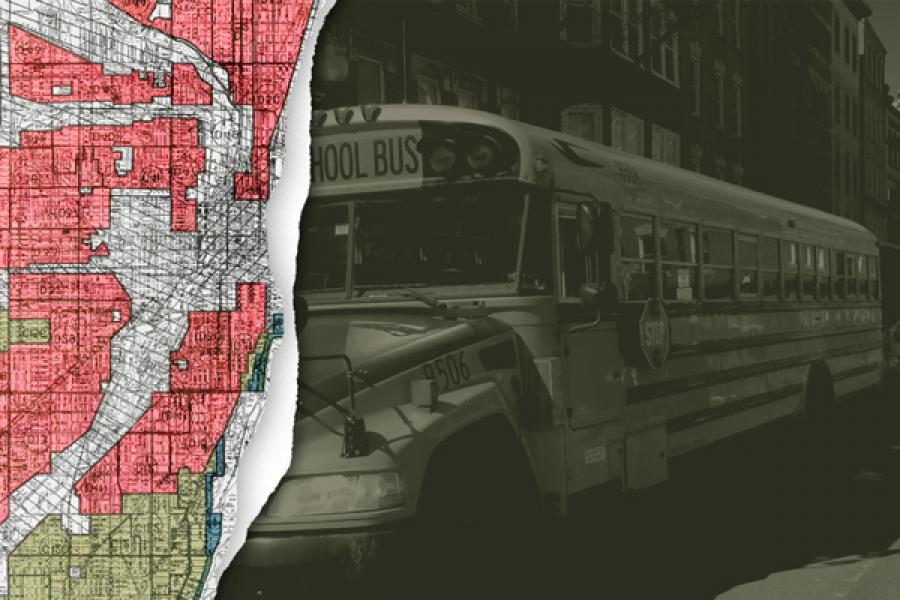
Education and Housing
Nov. 19, 2020 at 7:00 p.m.
Moderated by Adam Harris, staff writer for The Atlantic, faculty experts addressed the history of educational inequities in the U.S., residential and urban segregation past and present, why efforts aimed at ameliorating the impact of racism in education and housing so often fail, and ideas for how to address real change. Audience questions were answered throughout the panel.
References and resources:
Hansberry, Lorraine. A Raisin in the Sun: A Drama in Three Acts. New York: Random House, 1959.
Harlan, Louis R. Separate and Unequal: Public School Campaigns and Racism in the Southern Seaboard States, 1901-1915. University of North Carolina Press, 1958.
Harris, Adam and Adraint Khadafhi Bereal (photographer). "The Black Yearbook: Photos from the University of Texas at Austin," The Atlantic, September 2020 issue.
Harris, Adam. "The Limits of Desegregation in Washington, D.C.," The Atlantic, September 29, 2020.
Harris, Adam. "The Undoing of a Tennessee Town," The Atlantic, September 29, 2020.
Harris, Adam. "The Persistence of Segregation in South Carolina," The Atlantic, September 29, 2020.
Joffe-Walt, Chana. "Nice White Parents," (podcast) Serial and the New York Times, July 23, 2020.
Jones, Nikole Hannah. "The Problem We All Live With," This American Life, WBEZ Chicago, July 31, 2015.
Massey, Douglas S. and Nancy A. Denton. American Apartheid: Segregation and the Making of the Underclass. Harvard University Press, 1998.
Myrdal, Gunnar and Ralphe Bunche. An American Dilemma: The Negro Problem and Modern Democracy. Harper & Brothers, 1944.
Rooks, Noliwe. Cutting School: The Segrenomics of American Education. New York: The New Press, 2017.
Taylor, Keanga-Yamata. Race for Profit: How Banks and the Real Estate Industry Undermined Black Homeownership. University of North Carolina Press, 2019.
United States, National Advisory Commission on Civil Disorders. Report of the National Advisory Commission on Civil Disorders (Kerner Report). February 29, 1968.
Wilkerson, Isabelle. Caste: The Origins of our Discontents. New York: Random House, 2020.
Wilkerson, Isabelle. The Warmth of Other Suns: The Epic Story of America's Great Migration. New York: Random House, 2010.
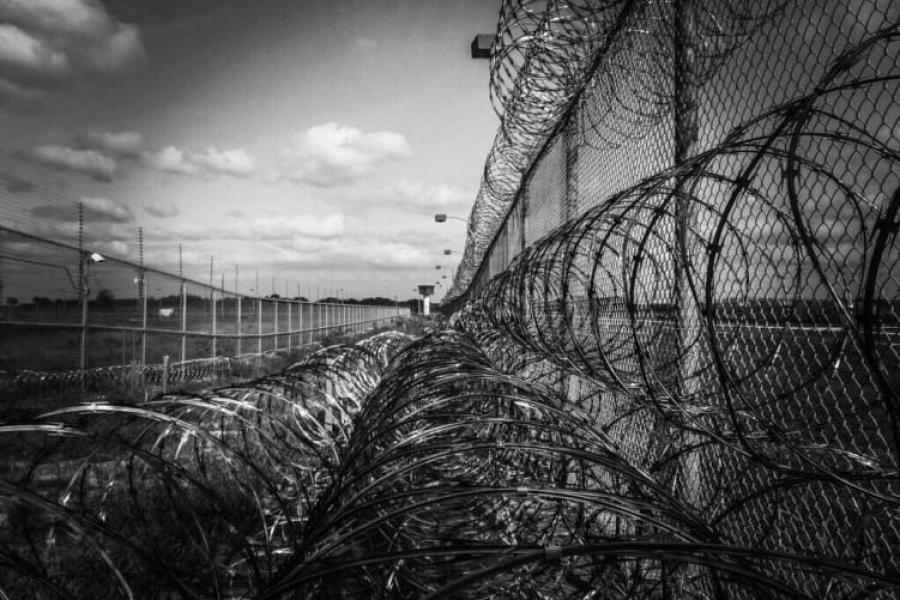
Policing and Incarceration
Sept. 16, 2020 at 7:00 p.m.
This webinar addressed how racism came to be so enmeshed in policing and incarceration in the United States and why efforts aimed at ameliorating its impact so often fail. Participants discussed what is meant by prison abolition and police defunding, why racism matters, and possible ways for the country to move forward.
The College of Arts & Sciences partnered with Cornell Law School for this event, with opening remarks from Noliwe Rooks, The W.E.B. Du Bois Professor of Literature and director of the American Studies Program. Marc Lacey ’87, national editor for The New York Times and the inaugural College of Arts & Sciences Distinguished Visiting Journalist served as moderator.
References and resources
Alexander, Michelle. The New Jim Crow : Mass Incarceration in the Age of Colorblindness. New York: [Jackson, Tenn.]: New Press; Distributed by Perseus Distribution, 2010.
Blackmon, Douglas A. Slavery By Another Name: The Re-Enslavement of Black Americans from the Civil War to World War II. Anchor Books, 2009
Blair, Robert, Sabrina Karim, Benjamin Morse, 2019. “Establishing the Rule of Law in Weak and War-torn States: Evidence from a Field Experiment with the Liberian National Police,” American Political Science Review, 113(3): 641–657
Davis, Angela Yvonne. Are Prisons Obsolete? New York: Seven Stories Press, 2003.
Enns, Peter. Incarceration Nation: How the United States Became the Most Punitive Democracy in the World. Cambridge University Press, 2016.
Forman, James. Locking Up Our Own: Crime and Punishment in Black America. New York : Farrar, Straus and Giroux, 2017.
Gilmore, Ruth Wilson. Golden Gulag: Prisons, Surplus, Crisis, and Opposition in Globalizing California. 1st ed., University of California Press, 2007.
Haskins, Anna R., Mariana Amorim, and Meaghan Mingo. 2018. “Parental Incarceration and Child Outcomes: Those at Risk, Evidence of Impacts, Methodological Insights, and Areas of Future Work.” Sociology Compass 12:e12562 1-14.
Haskins, Anna R. and Hedwig Lee. 2016. “Reexamining Race when Studying the Consequences of Criminal Justice Contact for Families.” ANNALS of the American Academy of Political and Social Science 665: 224-230.
Hubler, Shawn and Julie Bosman. "A Crisis That Began With an Image of Police Violence Keeps Providing More." New York Times, June 5, 2020.
Jackson, George, 1941-. Soledad Brother; the Prison Letters of George Jackson. New York :Coward-McCann, 1970.
Karim, Sabrina. "Relational State Building in Areas of Limited Statehood: Experimental Evidence on the Attitudes of the Police." American Political Science Review 114.2 (2020): 536-551.
Muhammad, Khalil G. The Condemnation of Blackness: Race, Crime, and the Making of Modern Urban America. Harvard University Press, 2010.
Richie, Beth. Arrested Justice: Black Women, Violence and America’s Prison Nation. NYU Press, 2012.
Robertson, Campbell. "Crime Is Down, Yet U.S. Incarceration Rates Are Still Among the Highest in the World." New York Times, April 25, 2019.
Schrader, Stuart. Badges without borders: how global counterinsurgency transformed American policing. Vol. 56. University of California Press, 2019.
Stevenson, Bryan. "Slavery gave America a fear of black people and a taste for violent punishment. Both still define our criminal-justice system." New York Times Magazine, August 14, 2019.
Wacquant, Loic. "Deadly Symbiosis: When Ghetto and Prison Meet and Mesh." Punishment & Society. 2001;3(1):95-133. doi:10.1177/14624740122228276
Woodfox, Albert. Solitary: Unbroken by Four Decades in Solitary Confinement. My Story of Transformation and Hope. New York: Grove Press, 2019.
